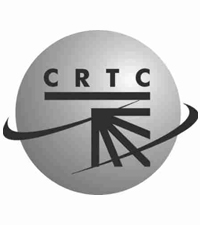So, do you think the length of your cellphone contract is OK?
What about that requirement to notify a wireless provider that you want to change or cancel your service? Cool with that?
Maybe there should there be some kind of standard or template that wireless service providers must follow to describe their service plans and packages, so consumers can make informed and economical choices?
Is a code needed to put in place consistent criteria for judging one wireless plan versus another, and for comparing the costs, data rates, cap penalties and other associated smartphone contract fees – all in an open and transparent manner?
The Canadian Radio-television and Telecommunications Commission (CRTC) is going to be asking such questions, as it kick starts a public consultation period on whether the Canadian wireless market has changed enough, or if it warrants intervention and the development of a national code for wireless services.
You might think that outraged consumers and angry customers are behind the call for a consistent code of conduct for the cellphone industry.
But the CRTC says it has received several applications suggesting that such a code be established; interestingly, or some might say, ironically, several of those requests come from the industry itself – and some of the biggest companies in the country.
Rogers, for example, suggested to the CRTC that it go ahead and develop and implement a “National Wireless Services Consumer Code”. Rogers calls it “the ideal solution” for protecting consumer interests and developing a more robust and competitive market.
It would at least be a consistent set of rules, one that seems more attractive to providers if not consumers than, say, each province setting up its own consumer protection regime.
Québec, for example, and its Consumer Protection Act, has specific criteria for operating a wireless service and offering those services to customers. Other provinces are looking at similar legislation or amendments.
The CRTC has looked at telecom before, of course. Back in 1994, it first decided that a hands-off approach was best, and that as a government organization, it would not regulate the wireless sector.
The CRTC said at the time that there was enough competition in the marketplace so the industry would guide itself, and provide Canadian consumers with a choice of innovative services without being told.
Well, how well has that worked?

Despite the fact there is more choice for wireless services in Canada; the ‘Big Three’ providers actually have more control over the market than before.
Yes, there have been changes in the market and now, new competitors are playing in the Canadian marketplace.
Yet, despite the fact there is more choice for wireless services in Canada; the ‘Big Three’ providers actually have more control over the market than before. They are bigger now, with a greater share of the market, even when facing the new competition.
And many still say that the Canadian scene is far behind other international marketplaces, and that we suffer from low speeds, high prices and poor service choices.
Currently the Big Three—Bell, Rogers and TELUS—control upwards of 96% of the cell phone market, and studies say that Canadians pay some of the highest cell phone fees in the industrialized world, points out citizen advocacy group OpenMedia.ca.
Others argue the opposite, which is one reason why the CRTC wants to hear from you – the wireless customer in Canada.
“Our practice has been to rely on market forces as long as we are convinced that the interests of consumers will be looked after,” said Leonard Katz, the CRTC’s Acting Chairman. “In this case, we are seeking evidence that our intervention is necessary before considering the development of a national wireless code.”

CRTC (Acting) Chair Leonard Katz has called for public consultation about wireless services in Canada.
Those who wish to participate in the CRTC’s proceeding are invited to submit their comments by May 3, 2012.
Comments may be submitted by completing an online form; or by writing (to the Secretary General, CRTC, Ottawa, Ontario, K1A 0N2:; or by fax (819-994-0218).
(There’s no mobile friendly way to have input, it seems!)
-30-
So, what’s your tech?
Are you going to advise the CRTC on wireless services in Canada?
What are you going to say?





Another quick update….
As mentioned above, provincial governments are in some cases moving faster that the CRTC and any recommendations it makes for a ‘wireless code’
Ontario has now tabled its plans to ‘curb mobile phone bill shock’ with the adoption of The Wireless Services Agreement Act, 2012, saying that it is time that Ontarians get legislative protection from unfair wireless practices.
The province’s wireless consumer protection legislation has received its fair share of ups and downs since it was originally introduced by MPP David Orazietti in 2010 as Bill 133 (The Wireless Phone, Smart Phone and Data Service Transparency Act, 2011).
The planned legislation requires wireless carriers to provide clear disclosure of all optional and mandatory services and contract cancellation penalties, and limit contract termination fees.
One of the new competitors in the wireless sector, Mobilicity, was quick to commend the government’s actions, in a statement released today:
“Carrier codes governed by the Canadian Wireless Telecommunications Association (CWTA) have proven ineffective in protecting consumers and seem to act in the best interests of the Big 3, not Canadians,” said Mobilicity President and Chief Operating Officer Stewart Lyons. “Ontario is definitely on the right track and we hope other provinces will keep the trend going until all consumers from coast-to-coast get the protection they deserve.”